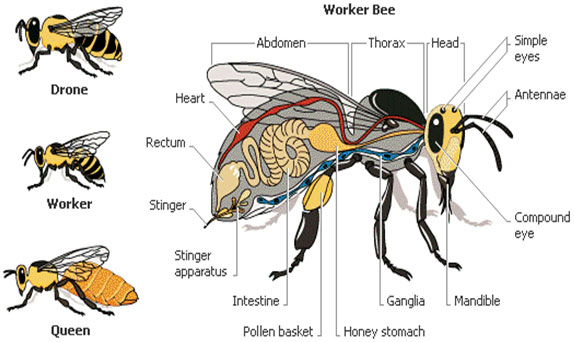APICULTURE OR BEEKEEPING
CONTENT- Meaning of Apiculture
- Importance of Apiculture
- Types of Bees
- Methods of Keeping Bees
- Bee Keeping Equipment
- Factors to Consider in Choosing a Site for Apiary
- Bee Products and their Uses
- Precautionary Measures in Keeping Bees
Meaning of Apiculture
Apiculture comes from two Latin words, apis meaning bees and cultura meaning cultivation. From these apiculture is the cultivation of bees. This definition however lacks substance as bees are animals not plants that cannot be cultivated but rear. Hence, apiculture can be better define as the art of rearing, breeding and managing honey bee colony in artificial hives for economic gains through the production of honey and other bee products for man’s use. For bees to produce honey, they feed majorly on nectar and pollenImportance of Apiculture
Apiculture is important for the following reasons:- Provision of honey: we obtain honey which serves as sweetening properties
- Source of income to the bee keepers
- Medicinal use: It is used in curing various ailments
- Source of raw materials: bye products of honey such as bee wax is used in manufacturing of candles, polish and adhesives
- Pollination: honey bees are pollinators and this is their greatest value in agriculture
- They provide employment opportunities to the bee keepers
- Bee keeping does not compete with any other agricultural crops and livestock hence; it can be practice alongside other forms of agriculture
- It requires little land space and capital
- It is a good field of study in agriculture
- The honey produced is sold in different market outlet
Types of Bees
There are many different species of bees most of which are solitary (Apiscerana) while others are social. Social bees live together in colonies and the best known is the honey bees (Apismellifera). The major types are indigenous and exotic bees.
You are viewing an excerpt of this lesson. Subscribing to the subject will give you access to the following:
- NEW: Download the entire term's content in MS Word document format (1-year plan only)
- The complete lesson note and evaluation questions for this topic
- The complete lessons for the subject and class (First Term, Second Term & Third Term)
- Media-rich, interactive and gamified content
- End-of-lesson objective questions with detailed explanations to force mastery of content
- Simulated termly preparatory examination questions
- Discussion boards on all lessons and subjects
- Guaranteed learning